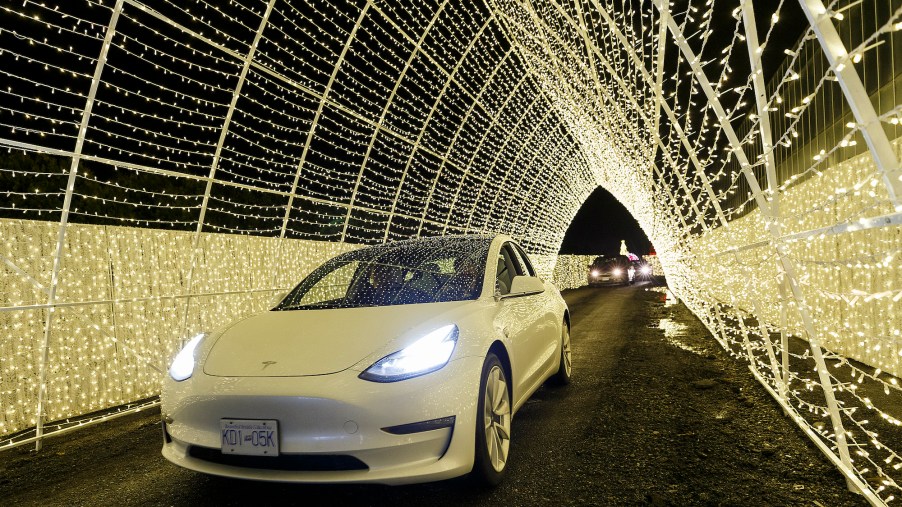
Electric Vehicles Will Be Cheaper Than Gas Cars Sooner Than You Think
At one point, the concept of electric vehicles was only a futuristic pipe dream, almost within the realm of flying cars. But the technology existed to operate cars with battery power. And as electric vehicles began humming to life with the advancement of technology, it seemed the cost to produce them would far exceed their benefits.
More and more vehicles today offer electric and gas/electric hybrid variations, and it’s clear they’re catching on with consumers. With streamlined engineering efforts, EVs are driving longer on a charge, harnessing more horsepower, and becoming more affordable to produce. In fact, some industry observers predict electric cars will soon become cheaper than their gas-powered counterparts.
Electric vehicles have been around for a century
As revolutionary as electric cars seem today, the battery-powered car isn’t a novel idea. In fact, the first electric car made its grand debut in 1890, according to Energy.gov. It was a six-passenger electric wagon whose top speed was 14 mph. Sure, it was no Tesla. But the technology caught on thanks to socialites who preferred the quieter electric vehicles to the noisy and often smelly exhaust-producing gas versions of the day.
The automaker Fritchle produced 198 electric cars between 1909 and 1914, with the peak year of popularity being 1912. EVs were all the rage among wealthy, high-profile businesspeople of the time. Even charging stations were readily available for consumers to assemble and use at home.
Why people abandoned electric vehicles in the 1900s
For a moment in history, the electric car was a hot commodity among those who had money. But after World War I, the United States began developing a more robust road system, and consumers were able to travel much farther, a challenge for the limited battery-powered car of the time.
And when Henry Ford launched his Model T in 1908, its $650 price tag was much more affordable than the average EV cost of $1,750, according to Curbed. Eventually, it made more sense to car buyers to embrace gasoline cars, and the EV seemed to fade into obscurity again.
A return to electrification and improvement in production
Addressing the problems of the past, today’s EV producers looked to develop better batteries. An increased interest in reducing carbon emissions also sparked the advancement of electric technology. Automakers like Tesla designed longer-lasting batteries and more consumer-appealing features, spurring a resurgence in EV popularity.
The market is responding with charging stations popping up across the nation. And manufacturers of traditional gas-powered vehicles are exploring EV and hybrid technologies for mass production.
EVs will soon become more affordable
As new electric vehicles rolled onto the market, consumers still faced high prices to achieve zero emissions and low operating costs. A significant portion of those costs can be attributed to the expensive batteries used to power the cars.
According to IndustryWeek, Bloomberg New Energy Finance predicted that streamlined battery technology and falling battery costs would translate to much more affordable EVs in the coming years. There could be a significant price drop, to the tune of nearly 77 percent over 15 years, for the batteries at the heart of EVs. At that rate, electric vehicles could become cheaper than their gas-powered, combustible-engine counterparts by 2025.
It’s hard to say if flying cars are in the near future. But it’s clear the electric vehicle is making a comeback and could soon take over. Purchase prices and ownership costs drive most car buyers. And if EVs will soon cost less than their gas-powered brethren, it’s safe to say more Americans will be driving electric cars in the next four years.


